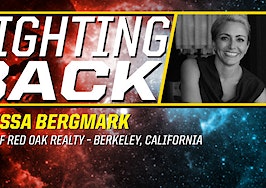In May, Kris Lindahl announced his departure from Re/Max to create his own brokerage, an exhilarating, yet risky, move for a man who had the top team at one of the largest and one of the most profitable Re/Max franchises in America.
“I have nothing but the highest respect for where I was,” said Lindahl. “We were so obsessed with building our brand that people thought we owned our own brokerage. We were losing, but we didn’t know how much we were losing.”

Kris Lindahl. Credit: Kris Lindahl
That month, Lindahl and his team of 35 agents and 15 support staff branched out on their own and began running ads on local radio and TV stations announcing the change.
Immediately, Lindahl said, his team found out how much they were losing by staying with Re/Max. Every day since the announcement, Kris Lindahl Real Estate has received 5 to 10 applications from agents who want to work for his team, and they’ve received an equal amount of increased attention from buyers and sellers.
Those moments, Lindahl said, affirmed his decision. There was no way he’d ever go back.
“No. There [wasn’t] a chance [that Re/Max could’ve kept us],” he said. “We had grown past the brokerage.”
Lindahl said the biggest obstacle for him was getting over the liability fear. Before establishing his brokerage, he often thought about the possibility of one lawsuit bringing him, and his team, down to the ground.
“You don’t want something to happen where it’s game over,” he said, noting that a bit of education and a good legal team has squashed his fears. He also reminded himself that Re/Max and other large brokerages all started off small, and those founders also had to choose independence over fear.
“Those [large] brokerages were just like us at one time,” he said. “They made that same step at one point in their journey.”
Now that he’s independent, Lindahl said he’s able to determine his team’s culture, values, and goals without worrying if it aligns with his franchisor.
“Everyone has a vision where they want to go, and we have to share that vision,” he said while mentioning that he wants everyone on his leadership team to have a net worth of at least $1 million.
He also says he doesn’t solely focus on key performance indicators (KPIs), such as lead conversions and sales, to measure success. Instead, he focuses on other intangibles, such as a positive work culture and fostering his agents’ personal growth.
“We forget we’re leading humans,” he said. “We have to invest in people.”
Correction: This article originally incorrectly implied that Lindahl was a franchise owner, when in fact, he was a team leader. The article has since been updated to remove the error and we regret it.









